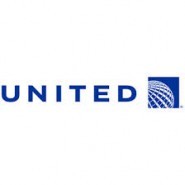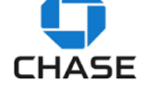Contents
What Is It?
Dynamic Currency Conversion (DCC) is a way for merchants to charge you in your home billing currency rather than in their own currency. Let’s look at an example to better illustrate the difference between DCC and a regular foreign currency transaction:
- You purchase a scarf from a merchant located in Thailand. This merchant is using DCC and automatically detects that you card uses USD. Rather than billing you in Thai Baht for the price you agreed upon, you’re billed in USD. In this case the merchant gets to set the exchange rate. Your card processor also charges a foreign transaction fee if there is any.
- You purchase a scarf from a merchant located in Thailand. This merchant is not using DCC and you’re billed in Thai Baht on the price you agreed upon. Your card processor (Visa, MasterCard or American Express) charge you a foreign transaction fee if there is any and exchange at extremely competitive rates which are published on their respective websites.
Why Should You Avoid It?
When a merchant sets an exchange rate for DCC, they get to choose what rate they set. Obviously this is seen as an opportunity to extract more money from a consumer in almost all cases. Typically merchants add a margin of 0.5%-1% onto this exchange rate. In addition to this, there is also a DCC fee which is typically another 4%.
If your card has a foreign transaction fee, you’re still charged this. The only way a consumer is better off is if the merchant sets an exchange rate that is more favorable to consumers than what the card networks are charging. I’ll let you in on a little secret, this never happens!
Let’s assume your card has no foreign transaction fees and you make a purchase of 30,000 THB with two merchants. One is using DCC and the other isn’t. For simplicities sake let’s assume the exchange rate is 30THB : 1USD
- You make a purchase of 30,000THB the merchant is not using DCC so you’re charged $1,000USD
- You make a purchase of 30,000THB the merchant is using DCC you’re charged $1,050
As you can see, this can quickly add up.
How Can You Avoid It?
When travelling international make sure the card you’re using does not have a foreign transaction fee. There are multitudes of cards that no longer charge this fee, make sure you use one that doesn’t. Use this spreadsheet for a complete list of which cards offer no foreign transaction fees and chip + PIN technology.
- Neither Discover or American Express use dynamic currency conversion.
- Ask to be billed in local currency.
- Check your receipts carefully to ensure no DCC has been charged. If you notice it has, then ask for the transaction to be voided and ask to be billed in the local currency (you might also consider shopping elsewhere)
- Don’t fall for scare tactics such as “Merchant Preferred Rate” (of course it’s the merchants preferred rate, they are making more money from you!)
- Consumers must be asked if they want the charge to be processed in their primary currency. If you’re not asked this then the merchant is breaking Visa/MasterCard’s rules and you should dispute the charge.
What Can You Do To Get DCC Removed?
Unfortunately, there is no way to opt out of dynamic currency conversion completely. That doesn’t mean you should taking this laying down though. Here are some tactics for getting DCC as a whole removed:
- Refuse to use Visa & MasterCard’s for international transactions. Make sure you inform Visa & MasterCard of this decision and any card issuers that use them as a payment network. I usually find that consumerist has the best e-mail addresses for the executive department.
- Contact your local government representative and ask for action. Writing letters works best, but an e-mail or phone call is also useful.
- Decline to use DCC whenever it is offered and refuse to shop with merchants that offer it. Write a letter to their senior management team explaining your decision.
- Use social media to complain. I’m sure @visa & @mastercard would love to hear about your complaints. So would any card issuers that use those payment networks and any merchants that try to charge you a DCC fee.
- If you’re charged DCC and the payment network refuses to reverse it, file a formal complaint. Your best bet will to be to file a complaint with the CFPB. Other options would include the FTC and your State Attorney General.
I’ve already sent written letters and e-mails to all of the card issuers that I have cards with that offer Visa or MasterCard’s explaining that I refuse to use their products overseas due to DCC. I’ve also forwarded these complaints to their management teams.
In the next few days I’ll start my lobbying efforts with CFPB as I believe they are the best chance of getting this practice outlawed. At the very least I expect card issuers to have to clearly disclose dynamic currency conversion in the rates & fees tables they are currently legally obliged to make public and also give cardholders the option to opt out of these fees.







You can initiate chargebacks for DCC
https://www.flyertalk.com/forum/credit-card-programs/1542983-dynamic-currency-conversion-dcc-2014-2016-a-139.html
Good post!!!
In general, in which countries have you encountered DCC?
I have traveled extensively through Central and South America and I have not yet encountered DCC. Also, I have traveled to Europe a many times and I have not seen DCC.
I have dealt with a few merchants that offer to charge in either dollars or the local currency (these merchants have bank accounts both in dollars and the local currency). The merchants I have dealt with, the charge in dollars is usually better than taking the charge in the local currency (usually they are very close–around a 2% difference).
When travelling outside the USA, I only use no foreign transaction fee credit cards. In countries like Argentina and Venezuela where there 2 or more currency conversion rates (official rates and blue market rates), it is advisable only to use cash for all purchases. Blue market rates have a much better exchange rates than the official exchange rate.
Last year I encountered DCC in Dubai with several merchants, but they never referred to it as anything like “Dynamic Currency Conversion”. The way it was usually asked was, “Do you want to pay for this on your card in Dollars or Dirham?” The first time it happened was at the first restaurant we went to and it caught me off guard. I did it wrong that first time and instructed them to do the transaction in U.S. Dollars. Afterward I looked at the receipt and realized that the exchange rate I’d received was worse than what I knew the exchange rate to be. After that, I made sure transactions were done in UAE Dirham.